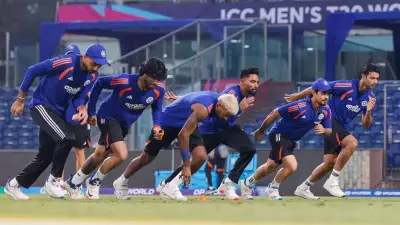
In a dramatic development that has sent shockwaves through the cricket community, eight key members of the Sri Lankan cricket team have made an abrupt decision to cut short their Pakistan tour and return home immediately. The sudden departure comes amid growing security apprehensions that have cast a shadow over the ongoing Asia Cup tournament.
Mass Exodus of Key Players
The Sri Lankan cricket contingent has been significantly reduced with the departure of eight crucial players who cited pressing security concerns as their primary reason for leaving Pakistan. The players who have opted to return home include some of the team's most prominent names: Kusal Mendis, Dushmantha Chameera, Dhananjaya de Silva, Chamika Karunaratne, Dimuth Karunaratne, Matheesha Pathirana, and Dasun Shanaka.
This decision represents a major blow to the Sri Lankan squad's composition and raises serious questions about the security arrangements in place for international cricket events in Pakistan. The players' anxiety reportedly intensified following specific security threats that emerged during their stay in the host country.
Security Threats Trigger Emergency Response
The catalyst for this mass exodus appears to be credible security intelligence that prompted immediate action from both team management and security advisors. While specific details of the threats remain confidential for security reasons, sources indicate that the warnings were substantial enough to warrant this unprecedented response from multiple players simultaneously.
What makes this situation particularly alarming is that these security concerns emerged despite Pakistan having implemented what was described as "presidential-level security" for all participating teams. The elaborate security measures, which included extensive protection details and secure transportation arrangements, ultimately proved insufficient to alleviate the players' safety apprehensions.
The timing of these developments could not be more sensitive, occurring during the high-profile Asia Cup 2023 tournament where Pakistan is serving as one of the host nations alongside Sri Lanka. This hybrid hosting model was itself a compromise solution after India declined to travel to Pakistan due to similar security concerns.
Tournament Implications and Fallout
The sudden departure of eight key players has created immediate logistical and competitive challenges for the Sri Lankan cricket team. Team management now faces the daunting task of reorganizing their squad and strategy mid-tournament, potentially requiring emergency call-ups of replacement players.
This incident also raises broader questions about Pakistan's ability to host international cricket events without security-related disruptions. The country has been working diligently to restore its reputation as a safe destination for international sports following the tragic 2009 attack on the Sri Lankan team bus in Lahore that left several players injured and security personnel dead.
Cricket authorities now face mounting pressure to address these security concerns transparently while ensuring the continuity of the Asia Cup tournament. The situation underscores the delicate balance between security protocols and the practical realities of international sports diplomacy in politically complex regions.
The ripple effects of this development are likely to extend beyond the current tournament, potentially influencing future tour decisions by other cricket-playing nations and reshaping the geopolitical landscape of international cricket hosting rights in the coming years.






